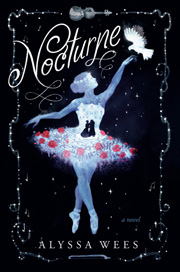
| Mon
Tue
Wed
Thu
Fri
Subscribe
| |||
Dear Reader, Everyone dressed up for Picture Day, when I was in elementary school. In fact, some of us girls would go over to each other's houses two weeks ahead of time and have a 'try-on' Saturday. We worked diligently putting together the perfect outfits for the Big Day. You'd think after all that preparation I would have been able to get Picture Day right the first time, but I never did. I always had to have a 'retake' done. Retake Day was supposed to be for kids who were absent on the original day. I was never absent, but I always hated--I mean HATED--my picture and I wanted another shot at looking good. I secretly dreaded the results of Picture Day every year. My stomach would ache for days ahead of time because I knew I would be facing a major embarrassment soon. Three weeks later when the teacher started passing out the envelopes filled with one 8x10, two 5x7's, and four sheets of wallet-size photos, I started sweating. The wait seemed endless and it was, because my last name then was Tindell and the envelopes were handed out alphabetically. Sigh, every year I'd get the same results: embarrassing pictures. I really wasn't an ugly kid--at least I didn't think I was--but I sure wasn’t photogenic and the proof was in those school pictures. Thanks for reading with me. It's so good to read with friends. Suzanne Beecher P. S. This week we're giving away 10 copies of the book Nocturne: A Novel by Alyssa Wees. Click here to enter for your chance to win.
| |||
Nocturne: A Novel Listen to a clip from the audiobook | |||
|
"No." Emilia's eyes never left mine. "Adrián, I think we'd better head home." Adrián blinked. "Why? What's wrong?" "Nothing," I said, because it really was nothing, only a moment of tripping over a memory, a flash of sun in my eyes, somehow, at mid- night. "I'm fine," I said at Emilia's dubious frown, and I 'did' feel fine—the past was only an echo, a shout dying down. "Really, I am." "Well. Great," Adrián said, and somehow I managed a smile. "An- other round, then?" "'One' more," Emilia acquiesced, and when he was gone she put her arm around my shoulders, pulling me close. I leaned into her and sighed, fading like a star in the dawn. The next week of rehearsal was not so smooth as the one before. I was restless; I couldn't sleep. Every time I closed my eyes, I felt a dark presence at the foot of my bed, a phantom leaning over me. A dirty hole in the chest where a heart should have been, bruised, swollen cheekbones, and crust of blood between the teeth. "Mamma? Lorenzo?" I whispered, my pulse as heavy as a stone in my throat, but of course it was nothing, it was no one—a shadow, or the dream of one. For the first time I realized—in a concrete, inescapable way—that no one I loved would come to see me dance as prima, that all eyes on me would be strangers' eyes (with the exception of Emilia's family, of course, but though they had been kind to me they couldn't truly replace my own). Somewhere between midnight and morning, I went to my little window and cleaned the daily grime from the glass with an old scrap of a threadbare pillow, until my breath had steadied once again. Still, I was too tired even to think. "Mistress begged Emilia to stay, you know." Beatrice cornered me that day in the dressing room during a break, with Anna beside her, as always. I sat on a bench, sipping from a cup of water, my legs stretched straight out in front of me while I rolled my ankles in large, slow circles to keep my muscles warm. The music from the studio was blunted through the walls, but I could hear Mistress's voice rising above the piano as she praised Emilia for her footwork in the scene where the princess and Ivan meet. "I heard there was a new patron ready to hand over all his cash, but he backed out when he discovered that Emilia was leaving." This was a rumor Emilia had already denied, several times, but gossip was a free currency, and no one really cared if it was counterfeit. "Oh?" I said, my attention squarely on my feet as I pointed and flexed them, pointed and flexed. My current pair of pointe shoes was almost dead, the shank too malleable, the box too soft, but shoes were expensive and Mistress insisted we wring every last ounce of support out of them before tossing them into the trash. "If you're not at your absolute best for every performance," Beatrice continued, undeterred, "we'll never get a patron and we'll all lose our jobs." "The company can't survive much longer," Anna added. "Maybe not even another season." "Pity you're an orphan," Beatrice said, with no pity at all. "No family, no connections. You'll have to work doubly hard to attract audiences, since you're completely unknown." The music in the studio trailed off, a pause between sentences, and in the silence Mistress called my name, summoning me back to the scene. I stood, giving Beatrice and Anna a thin, polite grin. "A company is only as strong as its weakest dancers," I said, and left the dressing room with the heat of their stares on my back. I tried to forget their words, to push them aside, but they became like ghosts inside me, stubbornly treading the same path through my mind, again and again as they had in life. If you're not at your best, we'll never get a patron. We'll all lose our jobs. The company can't survive. The shadows in my room, in my heart and in my head, only thickened as the weeks passed, and soon it was nearly time for costuming and lighting and practicing with a full orchestra. A nasty cold ripped through the company at the end of January, two weeks before opening night, and I was one of the last to fall ill with it, just when Emilia had finally recuperated. I spent a full day and night in bed, sleeping but not really resting, tossing and sweating through thick, tangled dreams. I'd been born in October of 1918, in the midst of the carnage wreaked by the Spanish influenza, upward of eight thousand Chicagoans killed in under two months. Growing up, Mamma would startle at every cough, cringe at every sneeze, instantly on alert and convinced that the flu was once again standing on our doorstep like a man from the Black Hand, extorting us for a sum we couldn't afford. Her anxiety had been infectious; even now, nearly twenty years after the pandemic had come and gone, I was convinced that every illness would be the end of me. Alone in my room, with Mrs. O'Donnell occasionally bringing a fresh glass of water or a bowl of watery soup, I pressed my face into my pillow and prayed—not yet, not yet, please, not yet—until the very moment I felt my fever break. Back in the studio, mostly better though not without some lingering congestion, every errant noise and movement distracted me: the dancers of the corps stretching at the barre when they were "offstage"; Elsie the pianist tapping her fingernails lightly against the keys while Mistress directed us between scenes. Whispers, scratching, Mistress's cane as she tapped out the tempo on the floor. And the door, opening and closing every time someone came in or out while fetching a glass of water, or swapping an old pair of pointe shoes for a new one to break in. "'What' is so very interesting over there, colombina?" Mistress slammed her hand down on the top of the piano, and Elsie cut off abruptly. It was the last rehearsal in the studio, a full run of the scene when Prince Ivan summons the Golden Firebird to the secret lair of Koschei the Deathless to help him wake the sleeping princesses trapped under the evil sorcerer's spell. I was so startled that I stumbled out of a pirouette and would have fallen if my partner, Will, had not caught me around the waist. The other dancers—Koschei's demons—stopped too, and Emilia looked at me from across the room. In the corner by the piano Mistress stood rigid, waiting for an answer. "I—nothing," I said, and bowed my head like a penitent before a priest. All those eyes, all those eyes on me. "It won't happen again." "Oh?" Her heels clicked on the floor. Mistress came across the room until she was standing right in front of me. "All day you've been looking at the door, almost as if you are desperate for escape. Tell me, are you planning to fly away?" "No." All I could hear was my heart. My heart, and her voice. "No, of course not." "This is not a cage." Her hand was cold as she patted my cheek. She lowered her voice, but the room was so quiet that it did nothing to keep her words private. "But where would we be without our little bird to sing for us so sweetly?" "I'm sorry," I murmured, and she leaned even closer. "I'm tired, that's all." "Tired? Would you like your understudy to step in for you, since you're so very 'tired', my poor dear?" Emilia and I locked eyes from across the room. She shook her head, just slightly. Of course she would dance for me, but if I let her, Mistress would see it as weakness. As failure. "No," I said, raising my voice now for the room to hear. "I'm fine." Mistress smiled, like a slow cut into an apple, a knife sawing at the surface of something unyielding. After a moment she stepped back, and a sigh shivered through the room. "All right," she said, and rapped her knuckles on top of the piano. "Let's back up to the beginning of the manèges. Places." I didn't look at the door again. Occasionally I watched myself in the mirror, but only to make sure that I was still there. Still prima, still the Golden Firebird; still moving even when it felt as if I had come to a standstill again, stuck in one position, one pattern, one place. It snowed the night before the first performance, so heavy and thick it was like the stuff of myth, a phenomenon that could only have been prompted by a great god's wrath. Or else by his indifference, coldness, and utter abandonment. I sat on my bed reading a copy of Vogue five months out of date when Emilia knocked on the door, holding up two cups of after-dinner coffee brewed—and burned—by Mrs. O'Donnell. I didn't feel I had room for much of anything in my belly besides butterflies, but the warmth of the mug in my hands was soothing. Emilia perched on the bed beside me, my room so narrow, so cramped, that I imagined our breaths filling the space like mist. If not for my little window, this would be less of a room and more like a closet, the place where you tuck away those things that don't require sunlight, like clothing and keepsakes and secrets. Love this book? Share your review with the Publisher
| |||
| Mon Tue Wed Thu Fri | |||


